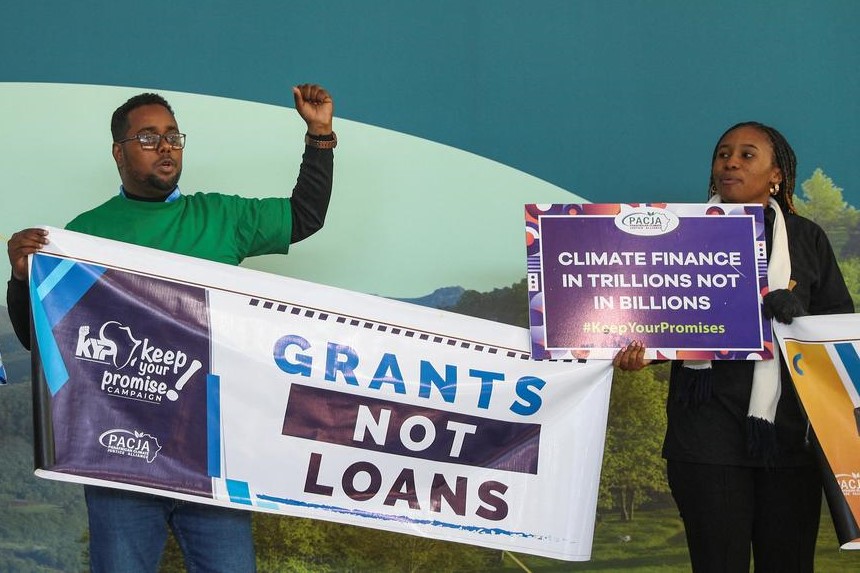Developing Nations Demand Climate Justice, Rich Nations Offer Vague Hope
Developing nations left COP29 disappointed as wealthy countries failed to raise the finance they deserved, raising concerns about the Global South’s development.
Delegates of developing countries returning from the COP29 summit that concluded last week may think that half the world doesn’t know how the other half lives.
They had set their hearts on a fair deal to compensate for the extreme weather and disruption that disproportionately affected them, but they knew they would end up chasing rainbows.
The COP29 presidency targeted $1.3 trillion annually by 2035. Still, it could only organize $300 billion in grants and low-interest loans from the wealthier countries to the developing nations that have borne the brunt of the climate crisis.
“Instead of allowing eye-to-eye negotiations between the parties, the presidency has actually been covering for the rich world and not forcing them to put forward figures,” said Mohamed Adow, the director of Power Shift Africa, a think tank based in Kenya.
“With no real money on the table and vague and unaccountable promises of funds to be mobilized, they are trying to shirk their climate finance obligations,” he added.
The other issue looming around the deal is that most of the funding would be channeled through returnable or private capital, which cannot be considered support from developed nations.
According to the US-based Institute of Energy Economics and Financial Analysis, several developing countries carry massive debt and burdening them with more returnable debt capital is an unsuitable support mechanism for developing countries, particularly lower-income ones.
Speaking at a round table discussion on just transition at COP29, India emphasized that the move toward a carbon-neutral economy must consider the Global South’s development needs.
Leena Nandan, the deputy leader of the Indian delegation, firmly asserted that the principles of equity and common but differentiated responsibilities and respective capabilities, or CBDR-RC, must remain central to all climate discussions under the Paris Agreement.
She said she was disappointed that countries were only discussing reducing pollution but not doing enough to help each other achieve these goals.
The COP29 summit was also a stage for infighting among developing nations. They opposed the funding of $39 billion demanded by the Alliance of Small Island States and $220 billion sought by the Least Developed Countries Group to redress the burden of the climate crisis.
Climate critics and fossil fuel-rich nations also cast a spell as the summit kicked off against the backdrop of the decisive US presidential win of Donald Trump, who vowed to end “horrible” wind turbines during a campaign rally.
To make matters worse, Azerbaijan’s President Ilham Aliyev referred to fossil fuel resources as a “gift from God” during his keynote opening speech, overlooking the call to “transition away” from fossil fuels made during COP28 last year in Dubai.
As the dust settles on COP29, the stark disparity between developing nations’ ambitions and wealthier countries’ commitments remains glaring. While discussions on climate finance and equitable solutions continue to unfold, the lack of concrete action and accountability leaves much to be desired.

